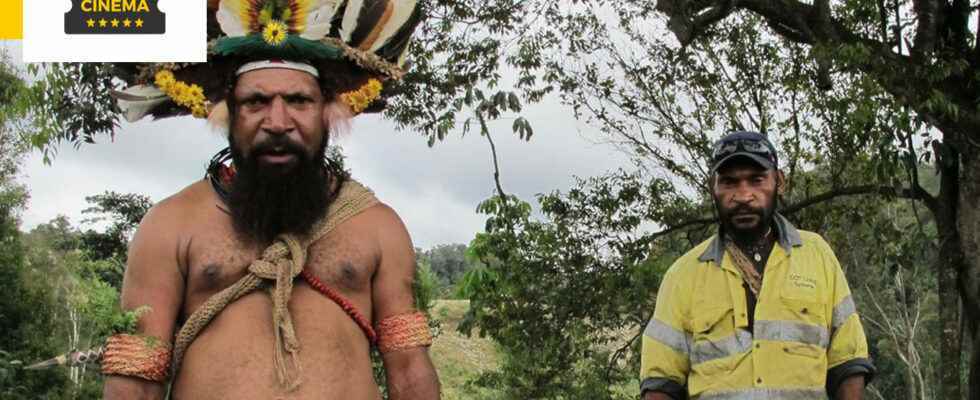Céline Rouzet’s documentary “140 km west of paradise” is released today in our theaters.
The documentary 140 km west of paradise by Céline Rouzet takes place in the heart of Papua New Guinea. The Highlands attract tourists eager for exoticism but above all unscrupulous foreign oil companies.
Every year, tribes are paid to dance and bring a change of scenery to tourist coaches, while families have ceded their land to companies like ExxonMobil, which promised them the construction of schools and hospitals in exchange. But nothing comes.
A Huli family finds itself caught between rival tribes, greedy politicians and one of the most powerful multinational corporations on the planet, they feel the earth shifting beneath their feet. As tourists point their lenses at meaningless dances, a few kilometers away, a world quietly disappears.
Céline Rouzet has always dreamed of living in the jungle. After studying journalism, she went to Papua New Guinea for the first time.
In the film’s press kit, the director explains: “I thought I could instantly understand and love this country, but in fact the experience was very difficult. I realized the violence and the complexity of the place. Even if I had other desires, I was not going to learn anything by going there as a tourist and without understanding the language.”
A film about broken promises.
After several trips as a radio documentary filmmaker for France Culture and France Inter, she became interested in a small mining town lost in the jungle, west of Papua New Guinea. Céline Rouzet remembers:
“JI met a young woman there who looked at me with both admiration and resentment, which really touched me. She said she wanted to be like us white people, rich, refined and vectors of progress.
New Story
This depreciation of themselves marked me and this look of envy on us seemed to me completely absurd and abnormal.
It was then, in 2010, that I heard about the ExxonMobil project. They had decided to exploit natural gas in the Highlands. I had been told that the company was going to shower the region with millions.
I wondered what effects so much money would have in a tribal society that didn’t work the way we do at all. To make a film, I first had to clearly understand the subject. So I first wrote an article for Le Monde Diplomatique and made another radio documentary.
In the end the money never arrived in the region and it became a film about waiting and broken promises.“
This fascinating documentary shows how Polynesian culture is undermined by the oil industry and Western tourists in search of “authenticity”. A biased image of a people forced to caricature themselves to survive on their own land.
140 km west of paradise is to be discovered in our dark rooms today.
